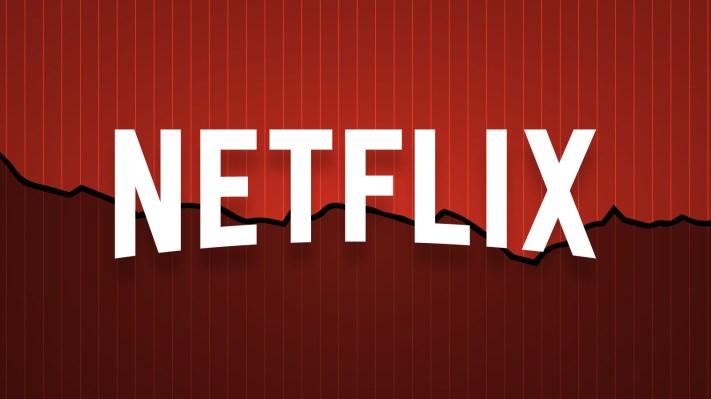Update: After falling as far as 14 percent, shares of Netflix are now only off a handful of points. Hell, Netflix might forsake its logo color and make it back into the black by pre-market. We’ll see.
Today following the bell, Netflix reported its third quarter financial performance, including revenue of $1.74 billion and earnings per share of $0.07. Analysts had expected the online video shop to earn $0.08 per share, off revenue of $1.75 billion.
Following its earnings miss, shares of Netflix are cratering, dropping over around 10 percent in after-hours trading. During regular hours, Netflix was largely neutral.
The company added 0.88 million new subscribers in its domestic market, and 2.74 million abroad. The company guided in its sequentially preceding quarter that it would add 1.15 million new domestic subscribers in the now-past period, along with 2.4 million subscribers outside of the United States.
Netflix’s reported revenue of $1.74 billion represents 23 percent growth compared to its year-ago quarter. The company’s $0.07 in per-share profit is predicated on net income of around $29 million during the financial interval.
The company ended its third quarter with cash and equivalents, excluding short-term investments, of $2.1 billion. That is stacked against the company’s negative operating cash flow during the quarter of $196 million. The company wrapped its third quarter with $2.4 billion in long-term debt.
Finally, Netflix’s Still Alive DVD Business managed a profit of $80 million. That compares to a sequential total of $78 million recorded during the firm’s second quarter this year. The third-quarter total was off 11 percent, compared to the year-ago period.
So, what’s next? According to Netflix, the firm expects 1.65 million new domestic subscribers in the fourth quarter.
Investors are not happy. The minor miss on both revenue, and profit, coupled to the company’s miss in domestic subscriber growth paint a slightly less rosy picture of Netflix, which has traded at record highs this year.
Rich valuations come with high expectations. Call it the Amazon paradox.
